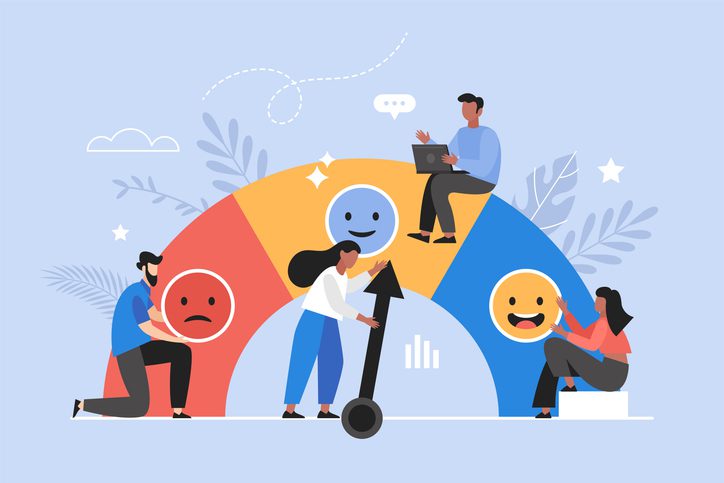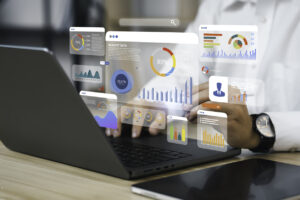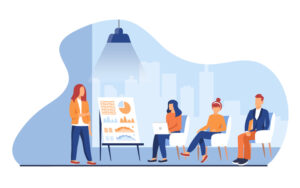Can the employee experience be elevated with AI?
- 4 Min Read
Attracting, retaining, and empowering a high-performing workforce hinges on fostering an exceptional employee experience.
-
In partnership with

- Author: HRD Connect
- Date published: May 7, 2024
- Categories

Attracting, retaining, and empowering a high-performing workforce hinges on fostering an exceptional employee experience.
While technology has streamlined HR processes, advanced AI presents an opportunity to radically enhance how employees interact with and experience the workplace.
AI excels at automating repetitive, routine tasks that have traditionally burdened HR teams and employees. By leveraging AI to streamline workflows like payroll, compliance, documentation and data entry, organizations can minimize mundane workloads.
This allows the human workforce to dedicate more time to strategic, engaging, and collaborative activities that drive impact.
One of AI’s powerful applications is deriving insights from organizational data. Through natural language processing, AI can analyze surveys, and check-in data to monitor sentiments across the workforce.
HR gains visibility into areas of high engagement or emerging frustrations, enabling proactive steps to enhance the employee experience before issues escalate.
Personalizing Development and Wellness
AI has the potential to tailor HR offerings to individual employee needs, goals, and aspirations, but it’s not a magical solution. By leveraging advanced analytics and machine learning capabilities, AI systems can develop an understanding of an employee’s existing skills, aspirations for growth, and developmental priorities.
However, human insight and oversight are still crucial. AI can suggest personalized learning pathways based on data, but these should be reviewed and refined by HR professionals who deeply understand organizational needs and employee aspirations.
These customized plans could map out relevant coursework, training opportunities, recommended resources, and mentorship options – providing a data-informed roadmap for employees to build on their strengths and address skill gaps.
Effectively personalizing development requires carefully integrating AI recommendations with human expertise, organizational context, and employee input. While AI offers new capabilities, elevating the employee experience demands a balanced approach that leverages technology responsibly alongside human judgment and engagement.
But AI’s personalization potential extends beyond just training and development. It can also intelligently analyze factors like workload patterns, schedule demands, and employee survey data to help identify potential areas of strain or burnout risk for individual employees.
Armed with these insights, AI can then recommend personalized interventions – whether that’s nudging an employee to take a day off adjusting deadlines, providing access to wellness coaching resources, or suggesting workload rebalancing.
This level of granular, individualized support demonstrates an organization’s commitment to nurturing its workforce’s growth and wellbeing. Employees feel seen, understood, and invested in as whole individuals rather than just role-fillers. Their unique talents are cultivated in lockstep with their personal and professional aspirations, while their health and work-life harmony are proactively safeguarded.
Augmenting Talent Processes
For recruiting, workforce planning or performance management, injecting AI allows data-driven talent decisions with reduced human bias.
AI can automate job listings, match candidates to roles, , identify mentorship opportunities, and ensure equitable practices like compensation and promotions.
The result is a consistently fair, diverse and optimized talent pipeline.
Driving Collaboration and Knowledge Sharing
AI-powered tools such as company-wide communication systems, knowledge platforms, and virtual assistants enhance teamwork by helping employees find the right expertise, information, and colleagues, no matter where they are located.
AI tools such as smart filters and prompts improve conversations and information sharing in online workspaces. Smart filters automatically sort and prioritize information, ensuring employees receive only the most relevant content. This helps make communication more efficient and strengthens connections within the organization, enhancing overall employee satisfaction.
“At MHR, we are using AI in our Service Desk to help our Application Specialists locate the right knowledge to answer customer queries,” says Hannah Jeacock, research director at MHR.
“We have created a Copilot that, when asked a question, searches across the thousands of pages of documentation to form an answer, it includes references so that the answer’s accuracy can be verified. This has greatly helped the team decrease case handling times and improve case resolutions.”
While AI holds immense potential, it enhances rather than repletes human workforce management. CIOs and CHROs must thoughtfully blend AI capabilities with human oversight, emotional intelligence and empathy to craft an elevated yet fundamentally human employee experience.
Achieving that balance will differentiate the organizations that become true employers of choice.
Discover more about what your organization could be doing to improve employee experience in MHR’s new employee experience research report.









